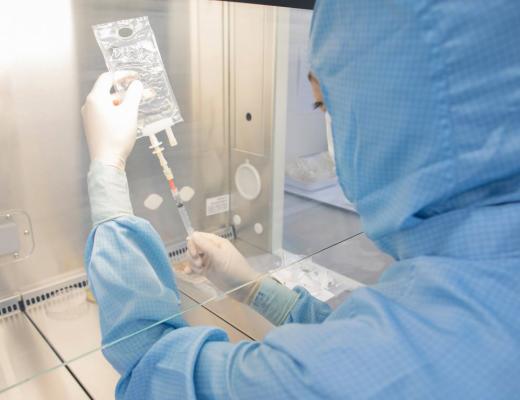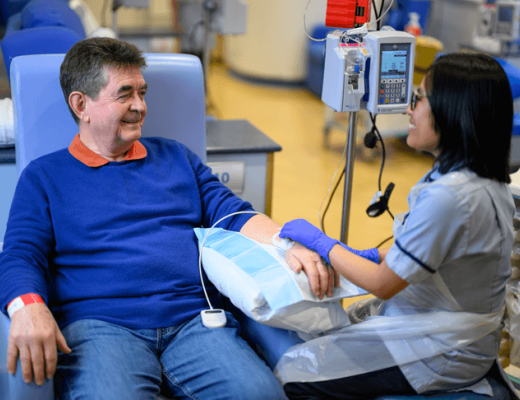“The outlook for melanoma patients is much brighter, but more still needs to be done”
Despite a stage 4 melanoma skin cancer diagnosis in 2017, Shiona is now able to live life to the fullest thanks to targeted drug treatment at The Royal Marsden.

“As little as 10 years ago, a stage 4 diagnosis provided an average life expectancy of between six and nine months.” says Shiona. “The prognosis was even worse if, like me, melanoma had turned up in the brain.”
“I am very fortunate to be treated by the fantastic melanoma team and Professor Larkin, a world-renowned oncologist, at The Royal Marsden. The care I receive at the hospital is outstanding, and the research undertaken to continue developing new treatments is at the forefront of medical science and developments globally."
“I want to share my personal story to raise awareness of melanoma and highlight how important ongoing research is in developing life-saving treatments.”
Diagnosed with stage 2 melanoma skin cancer
Shiona was 45 when she went to her doctor about an abnormal mole on her back, which had started to bleed. In June 2016, shortly after the mole was removed, Shiona was diagnosed with stage 2 melanoma.
“I was healthy, active and enjoying the prime of my life, it was a shock. When I was told that the mole they had cut out of my back was melanoma, I had no idea of the journey I was about to embark on.”
“At that point I was then referred to The Royal Marsden and I was put under their care.”
“I was ignorant in thinking that once it was cut out, this would be the end of it. Melanoma is an unpredictable and aggressive disease.”
Unfortunately, six months after her mole was removed, an MRI scan showed that Shiona’s cancer had spread to her lymph nodes. She had 20 lymph nodes removed, but in March 2017 an MRI scan revealed that a small tumour had developed on her brain, and the melanoma had progressed to stage 4.
Immunotherapy and Targeted drug treatment at The Royal Marsden
Shiona was placed under the care of Professor James Larkin, a Consultant Medical Oncologist at The Royal Marsden, who specialises in novel treatments for melanoma.
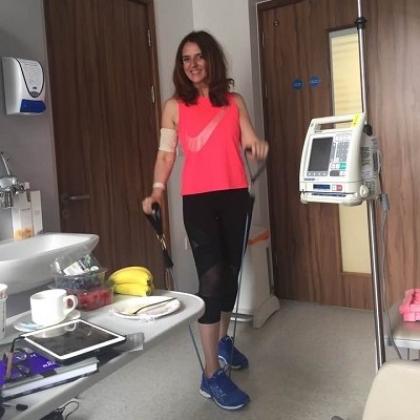
Initially, Shiona was given a combination of two immunotherapy drugs: Ipilimumab and Nivolumab. Immunotherapy uses the power of the body’s own immune system to identify and eradicate the cancer cells.
Shiona had 3 infusions of immunotherapy, but unfortunately experienced side-effects, and the treatment had to be stopped. Despite this, her cancer responded, and she was clear for 6 months until December 2017, when a new small tumour was detected.
“Due to the side effects I had experienced on immunotherapy, I was moved onto targeted therapy, Debrafenib and Trametinib, which targets the faulty BRAF gene I have in my cancer. This combination has reduced the size of the tumour on my brain and kept the rest of my body clear. It’s been nearly eight years now and my latest scan showed good results!”
Targeted therapies like Debrafenib and Trametinib are drugs developed to target genetic mutations in tumours in order to stop cancer at a molecular level. There are many different types that target cancer cells in different ways. Debrafenib and Trametinib are growth inhibitors, meaning they block the chemicals in the body that trigger cancer cells to divide and grow.
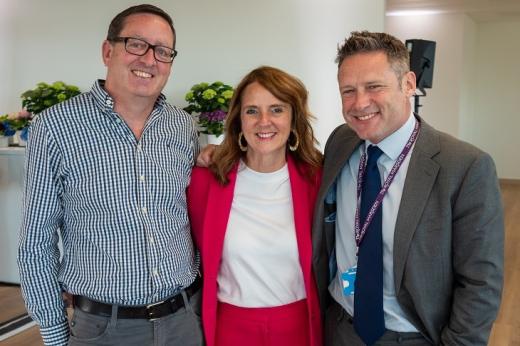
Thanks to their expertise and the incredible advances in the research I am living life to the absolute fullest, having lots of laughs, travelling the world, and fundraising for The Royal Marsden Cancer Charity.
“I feel very fortunate to be treated by the fantastic melanoma team at The Royal Marsden team led by Professor Larkin. The care I receive at the hospital is outstanding and the research undertaken to continue developing new treatments is at the forefront of medical science and developments globally.”
“Thanks to their expertise and the incredible advances in the research I am living life to the absolute fullest, having lots of laughs, travelling the world, and fundraising for The Royal Marsden Cancer Charity.”
Shiona’s life now and her fantastic fundraising
Now, Shiona’s cancer is stable, and she regularly attends The Royal Marsden for treatment and scans.

“Whilst life has changed forever, I’m making the most of every day and enjoying it to the maximum with all of those that I love and continuing to take on as many adventures as possible.”
“Fortunately there has been significant progress in the treatment of advanced melanoma in the last 5 years” says Shiona. “With the introduction of immunotherapy and targeted treatment, the outlook for melanoma patients is much brighter, but more still needs to be done.”
“For the last 7 years I have been fundraising for The Royal Marsden Cancer Charity with my family and friends for melanoma research. I have benefitted from pioneering research and treatments and I want to give back to help fund more research and new treatments for future cancer patients.”
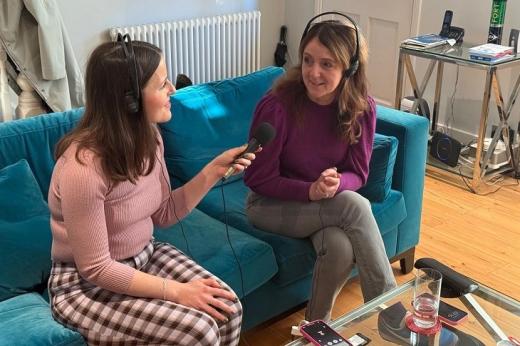
Shiona is a huge supporter of The Royal Marsden Cancer Charity, having completed many amazing fundraising challenges since her diagnosis. Alongside friends and family, who have been dubbed ‘Team Shomelanoma’, she has raised over £170,000 so far!
In 2024, Shiona was nominated for a BBC ‘Make a Difference’ award in recognition of her incredible fundraising achievements. Find out more about Shiona’s fundraising.
Supporting melanoma research at The Royal Marsden
Immunotherapies have significantly improved survival rates for advanced melanoma, which was considered very difficult to treat, and often untreatable, until recently. The Royal Marsden Cancer Charity funds groundbreaking immunotherapy research at The Royal Marsden, which for many advanced melanoma patients, is helping them live longer and giving them more time with their loved ones.
Following research led by The Royal Marsden, over half of advanced melanoma patients treated using a specific combination of immunotherapy drugs are now surviving for ten years or more.
Professor James Larkin, Consultant Medical Oncologist, said: “Just 15 years ago, only 1 in 20 patients with advanced melanoma would survive for five years, with many living for just six to nine months. Following research led by The Royal Marsden, over half of advanced melanoma patients treated using a specific combination of immunotherapy drugs are now surviving for ten years or more.”
Unfortunately, for some patients like Shiona, immunotherapy can cause side effects. Through the EXACT trial, which receives funding from The Royal Marsden Cancer Charity, clinicians at The Royal Marsden are aiming to find a way to predict who is likely to suffer from side effects. The trial is one of the most comprehensive studies of its kind, dedicated to investigating the inflammatory side effects of immunotherapy.
Help us fund life-saving research
The Royal Marsden Cancer Charity is the largest charitable funder of research at The Royal Marsden. Your support helps us fund innovative research at The Royal Marsden to develop new and better treatments for cancer that give Melanoma patients like Shiona more time.
Make a donation today or discover more ways to support us.
Liked this story?
Read more on our blog!
